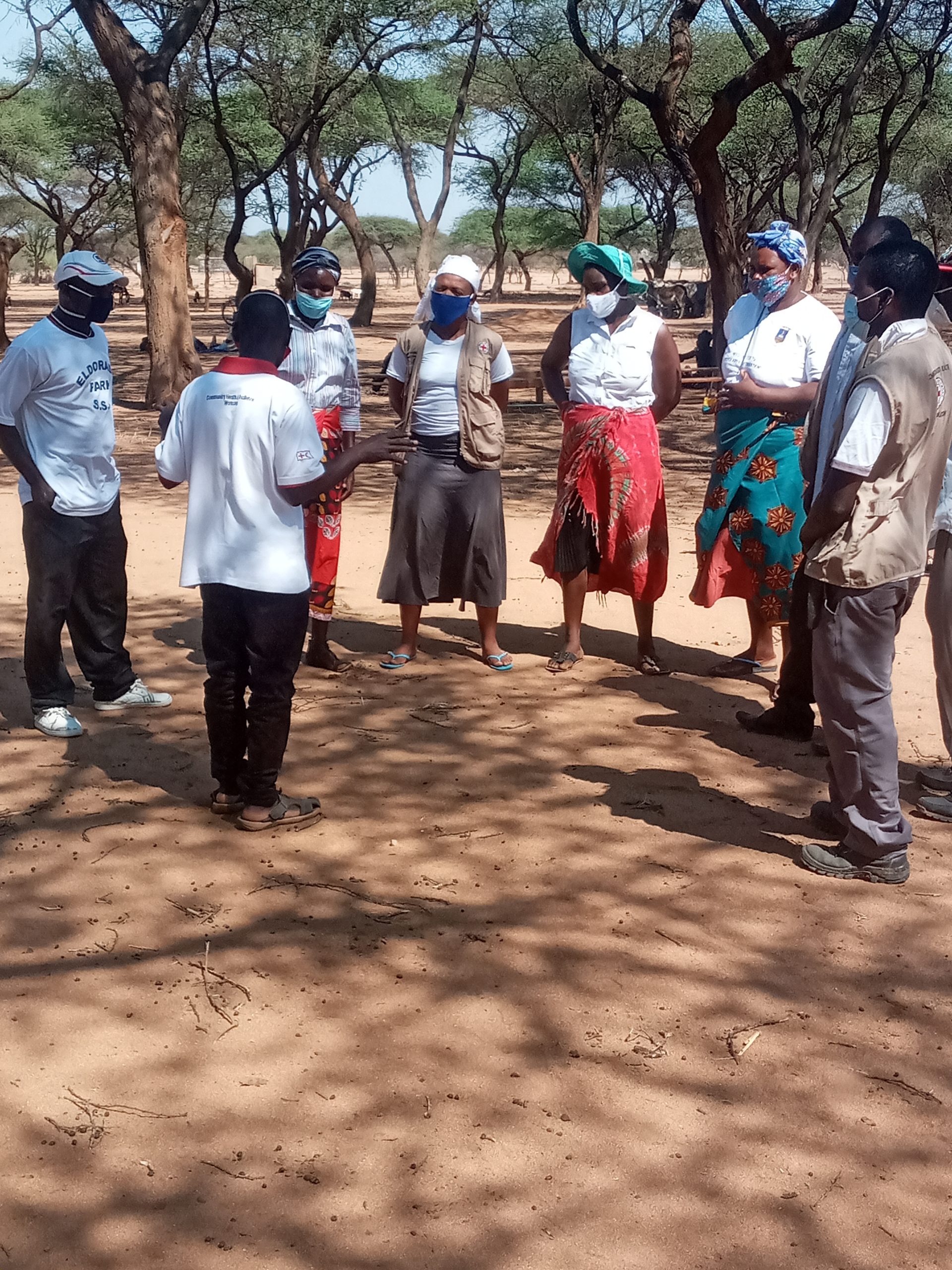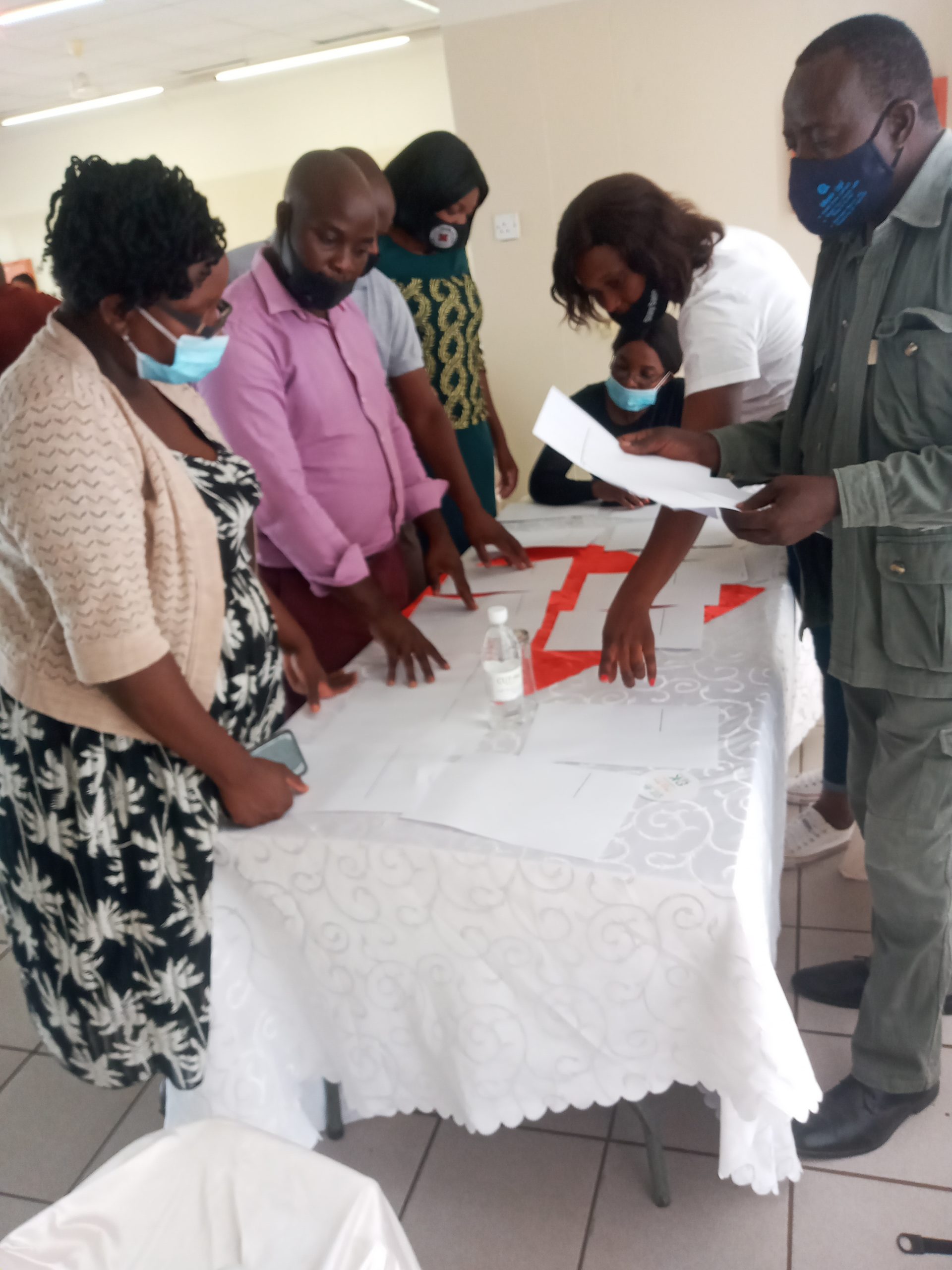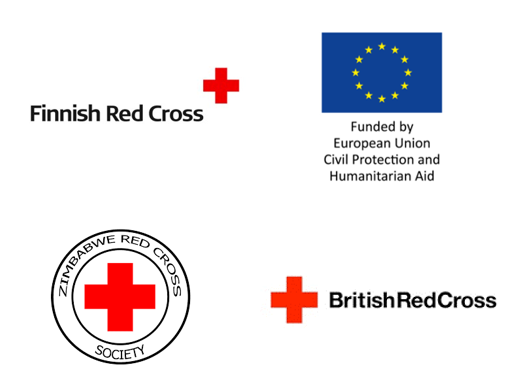March 18, 2021
Cash preparedness highlights from the Zimbabwe Red Cross Society
In Zimbabwe, the “Resilience through Disaster Response management; Multipurpose Cash Preparedness and Comprehensive School Safety Project” has concluded in 2020, after running for two years in collaboration with Finnish Red Cross (FRC), European Commission Humanitarian Aid Office (ECHO), UN World Food Programme (WFP) and British Red Cross (BRC) – with the main implementation being led by Zimbabwe Red Cross Society (ZRCS).
The first project objective was to increase the capacity of ZRCS staff and volunteers to plan and implement cash and voucher assistance (CVA) programmes to run effectively. The information and tools to increase knowledge and skills of those involved in delivering CVA were based on the Cash in Emergencies Toolkit developed by the Movement, as well as inputs by WFP.
ZRCS is in the process of successfully mainstreaming CVA, as shown by the use of CVA in the 2020 contingency plans in the context of the COVID-19 outbreak. Its integration has also been included into plans for 2021-2023, and into the Standard Operation Procedure which is currently being finalised to ensure the COVID-19 adaptations and the IFRC 2030 strategic plans are fully considered.
An overview of the crisis
Zimbabwe is affected by food insecurity across the majority of the country due to drought and flooding which have led to 5.5 million people (59%) of the rural population facing food insecurity. People have also experienced a worsening economic crisis. As part of efforts to address lack of foreign investment and lack of USD cash, the government has introduced a range of policies in recent years.
Despite these policies, inflation has continued unabated, with inflation rate growing exponentially in 2019, and reducing the purchasing power of households with already depleted food stocks.
How did ZRCS prepare to deliver CVA?
Continuing to learn about the use of CVA remains a focus of the work of ZRCS, whose staff and volunteers received training both online and in person. A finance and logistics workshop also took place with a key focus on Financial Service Providers (FSPs) with participants from different provinces and from the headquarter, coming from finance, logistics and admin backgrounds.

Cash Simulation Exercise – Nov 2020
The partnership with WFP allowed to extend training to include information management and the use of SCOPE; a beneficiary and transfer management platform that supports the WFP programme intervention cycle. This project has enabled a productive relation between ZRCS and WFP. The partnership was established and evolved into a strong collaboration with ZRCS as the implementing partner in the Lean Season Assistance operations in 2019/2020. Additionally, a number of joint activities and training have also strengthened the delivery capacity of ZRCS.
What were the lessons learned?
Distributing CVA has faced a wide range of challenges, including a change around currency across the country, together with the sudden creation of new rules on the use of mobile money. Due to this the team had to adapt the modality used to distribute cash assistance different times, moving from physical cash in envelops to mobile money to vouchers. The preferred modality sometimes varied also from region to region, and from one month to the next, giving staff and volunteers an opportunity to show their capacity to be versatile.
Having a good connection to the communities helped make these transitions easier. Through this process the ZRCS had a chance to reflect on the importance of cash and voucher assistance for the community, whose feedback was recorded in different ways.
Using cash transfers increases flexibility, dignity of beneficiaries and it gives them a choice to make […] as the communities have different priorities. Some people need money for medication, some need money for food, some for school fees, so having cash makes all these options possible. This is why at the ZRCS we are proud of using cash and voucher assistance.
ZRCS staff member, 2019
This process also led ZRCS to strengthen its commitment to community engagement and accountability (CEA) and to organise a joint learning event with the Kenya Red Cross Society as well as a CEA workshop.

Standard Operating Procedures Review – Oct 2020
To ensure the use of CEA was going to become an integral part of the work of the ZRCS, duties related to CEA have been added into job descriptions and training has been provided to volunteers. ZRCS has also recruited a CEA officer to ensure that staff continues to engage the community and to be accountable to them when implementing the programmes designed to reflect their preferences. In this way, CEA has emerged as a key element to ensure the best choices are made to achieve the desired objectives when distributing CVA.

